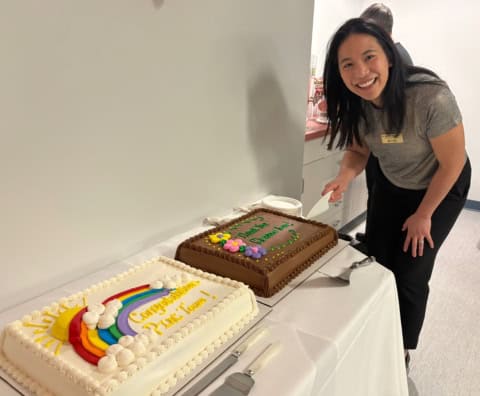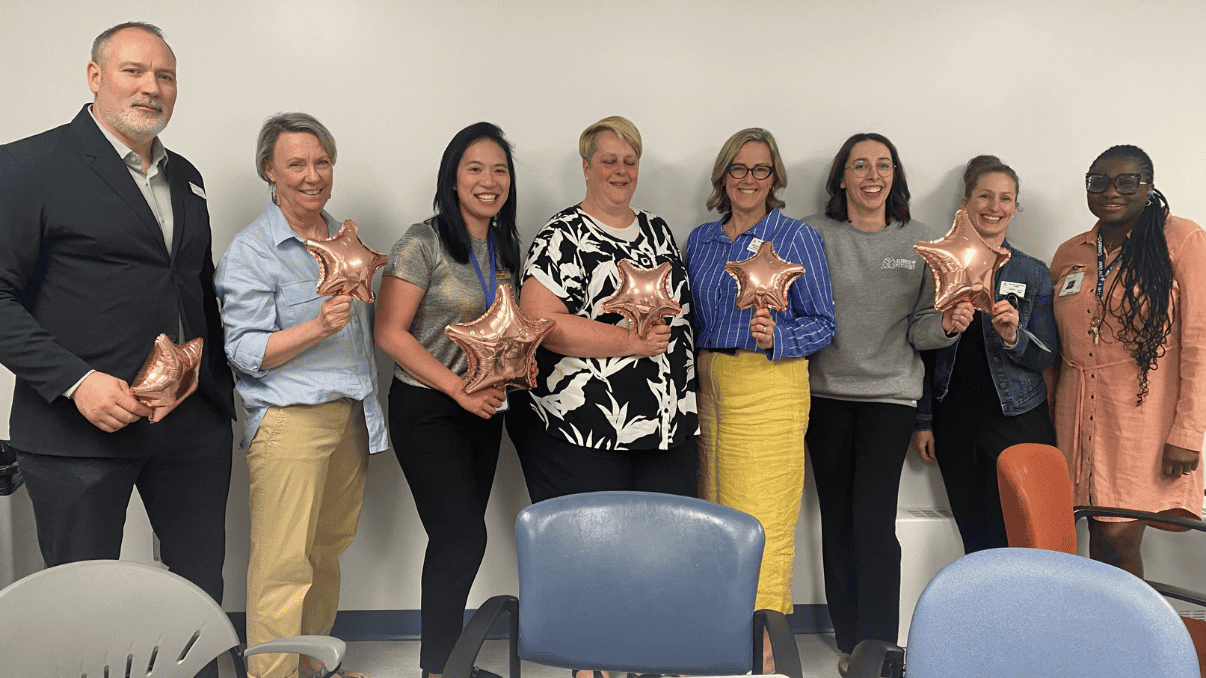The Pediatric Interdisciplinary Neurodevelopmental Clinic (PINC) initiative at the Glenrose Rehabilitation Hospital represents a new, innovative approach for neurodevelopmental pediatrics.
What was originally established in the late 1990s as the Pediatric Fetal Alcohol Spectrum Disorder (FASD) Clinic, one of the first of its kind in Alberta, has evolved into PINC; a transformation that reflects on years of learning and deepened understanding of early childhood development.
The new program, supported by the Glenrose Hospital Foundation, is shaped by insights from families, policy makers, educators, and frontline staff aimed at addressing inequity in healthcare access — specifically developmental pediatrics — across diverse communities.
Evolving beyond a singular focus of diagnosing FASD, the program now embraces a more holistic understanding of the child, looking to recognize each child’s challenges within the context of their unique story and family history. This includes an expanded view to consider a wide range of factors that influence neurodevelopmental disorders, including birth prematurity, intergenerational trauma and genetics, and social determinants like racism and poverty.
By adopting a child-first approach, the program emphasizes strength and resilience, actively working to reduce bias and discrimination in care for people experiencing disability.
“We’re also challenging ableism. An ableist approach is an assumption that because a child has a disability diagnosis, they will have a bad outcome. But what we’re saying instead is that a child’s future is not predicted by their disability diagnosis. Their outcome can be modified based on the opportunities and supports they have available to them,” says Dr. Sabrina Eliason, developmental pediatric physician at the Glenrose.
The program is modelled off evidence-based strategies like the World Health Organization’s International Classification of Functioning, Disability, and Health (ICF) framework, and is also guided by families and services in the communities it serves.
“We intentionally sought out diverse perspectives and have done a lot of engagement with the community to ensure that local context is shaping the clinic.”
Before a family first visits the clinic, they are provided with information and resources to support them while waiting for their initial assessment.
PINC is geared towards a more personalized approach to health care. While the previous program had every child run through the same 2-day multi-disciplinary assessment, now, children see a physician or psychologist in their first appointment who will then add on other assessments as-needed.
Families who previously visited the FASD Clinic shared how the fear of being associated with the clinic often had them delay seeking care. “Families accessing PINC now will start their conversations with clinicians with questions like ‘what are your and your child’s goals’. In the past, clinical discussions started with confirming whether there was alcohol exposure during pregnancy. This change in approach gives families dignity and ability to access care without fear of judgement.”
Since its launch, the initiative has gained attention both nationally and internationally. With continued support from the foundation, the hospital has already mapped out its next steps to ensure sustained growth and access.
“We’ve already seen 15 children since May and are currently working our way through the FASD Clinic waitlist. We also hope to be able to help children who cannot confirm they had prenatal alcohol exposure or who have developmental differences for other reasons. Although making developmental diagnoses including FASD will still be part of the clinic model, the primary focus of the clinic is helping all children reach their fullest potential and providing suggestions on how to help them reach their goals.”

As Dr. Eliason shares, true inclusion is supporting every child regardless of what their diagnosis is. And the PINC Program does just that.

